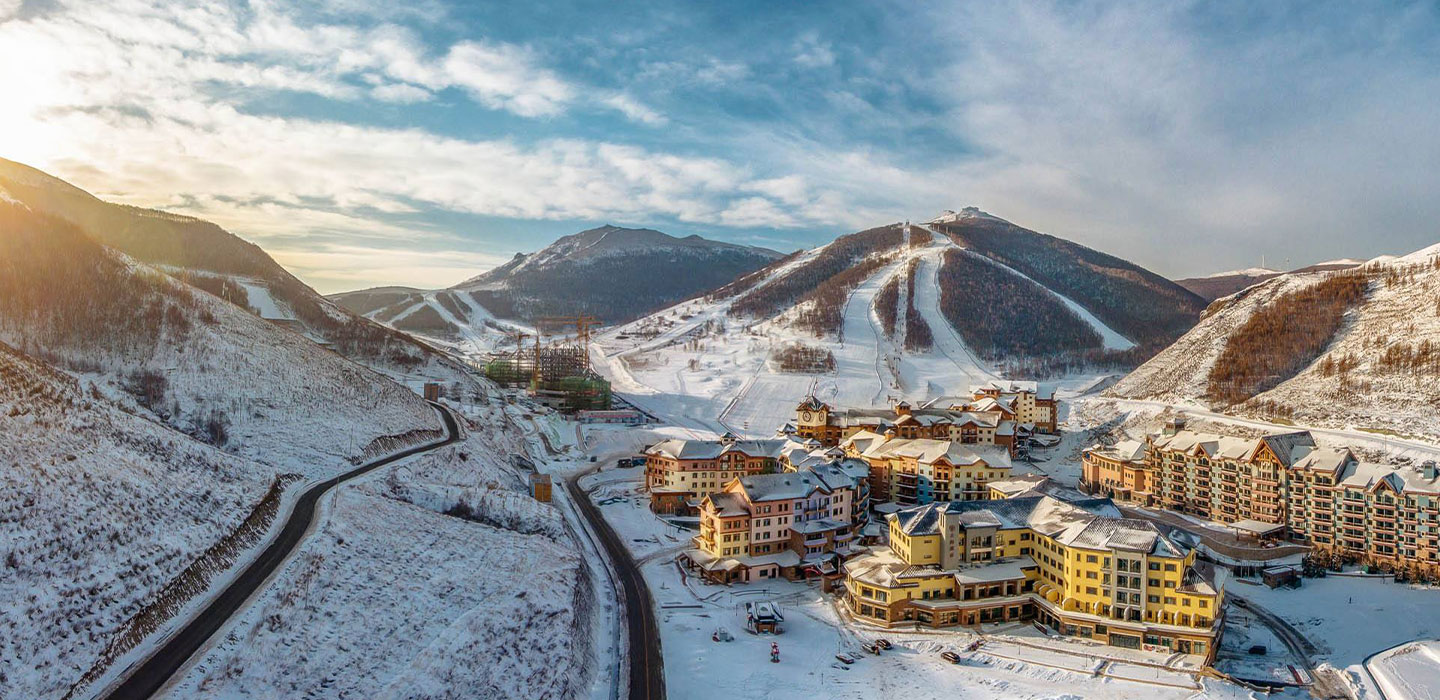北京是世界上唯一舉辦過夏季和冬季奧運會的城市。
2008年我在北京生活,作為一名觀眾,同時作為一名報道早間奧運新聞的主播,參與了那充滿魅力的17天盛會。
可惜的是,目前的這場疫情使包括我在內的許多人無法在2022年重溫這種經歷。
不過冬季奧運會照亮了首都周邊一些鮮為人知的地區,它們和北京一樣成為了本次冬季奧運會賽事的舉辦地,崇禮就是其中之一。
崇禮位於河北省,距離北京240公里。我的祖父就來自河北。但直到幾天前,我才知道崇禮這個地方。很快,數百萬人將聽到它的名字。
因為2022年冬奧會的滑雪項目將在這裡舉行。對於一個一直只以山多而被人聽說過的小縣城來說,這是一個巨大的榮譽。
很巧的是,崇禮正是從2008年北京舉辦夏季奧運會開始煥發新生。這一年,第一個滑雪場落成了。
崇禮的土壤質素不高,不適合農作物的生長,當地的工業也難以發展。多年來,崇禮是一個國家級的貧困縣。
自第一個滑雪場開放後,崇禮變成了運動員、遊客、投資者的目的地。這種變化對當地的基礎建設、住屋和教育等方面產生了連鎖性的影響。
對於生活在崇禮當地的12萬人來說,這是非常適宜居住的地方。由於其位於由山脈和海洋組成的華北平原和內蒙古高原之間的過渡地帶,崇禮的空氣質素居於河北省之冠。
它擁有49,000公頃的原始次森林,這些森林覆蓋的地區對水循環、土壤健康和清潔空氣起到至關重要的作用。
因此,崇禮擁有得天獨厚的自然資源,近年發展重點是將其改造成一個冬奧主要比賽場地。
落雪早、積雪厚、存雪期長使崇禮每年滑雪季長達五個月。平均每天約有5,000人進入雪道,整個雪場可容納多達10,000人。一系列的酒店、餐廳和其他設施,為當地社區帶來就業機會。其中高達90%的工作機會直接提供予崇禮和附近地區的家庭。
而且這些就業機會不僅是低技能的工作。例如,年輕人正在接受培訓成為滑雪教練,讓他們具備國際通用的技能。
起初,這些滑雪教練的水準參差不齊。之後隨著中國在2018平昌冬奧會上獲得九枚獎牌的成績,中國在冬季運動上迅速成長,由此產生了經濟學上的涓滴效應,吸引世界級人才來培訓年輕一代的業餘和職業運動員。
體育是一種世界性的語言,這些年輕的教練有一天會被日本、北美和歐洲的滑雪場聘用,在當地以專業的技術接待講中文的遊客。
無論是在國外還是在國內,崇禮的年輕人都有值得期待的未來,因為崇禮本身已經發展成為一個重要的滑雪勝地。
2019年,第一個滑雪場建成十年後,崇禮正式告別貧困。那一年,崇禮每五個人中就有一個人從事與冰雪有關的工作,超過3萬人直接或間接受益於仍在不斷進行中的轉型。
也許有一天,崇禮會躋身加拿大威士拿、法國的谷雪維爾、美國的阿斯本、瑞士的策馬特或北海道的二世古等世界級滑雪勝地的行列……成為一個將人們聚集在一起享受快樂、幸福和健康的地方。
Beijing is the only city on the planet to host a Summer and Winter Olympic Games.
I was there in 2008, as someone who lived in Beijing at the time, as someone who watched the Games as a spectator, and as someone who anchored the morning show on the Olympic broadcaster for those 17 magical days.
Sadly, the pandemic prevents many people including myself from re-living that experience in 2022.
But these Winter Games is shining a light on little-known areas close to the capital that are hosting different events for different sports. Chongli is one of them.
Chongli is 240km outside of Beijing in a province called Hebei where my grandfather is from.
I’d not heard of it until a couple of days ago. But soon, millions of people will hear its name. That’s because Chongli will host the ski events at the 2022 Olympics, a huge honour for a relatively small county, known more for its mountains than as the seat of international sport.
Ironically, Chongli’s new story began in 2008, the year of the Summer Games, when a ski resort was completed.
The soil quality in Chongli is poor, making it hard for farmers to grow their crops and for local industry to prosper and develop. For many years, Chongli was a national-level poverty-stricken area.
But since the first ski resort opened, Chongli has become a destination for athletes, tourists, and major investment, and that has had a knock-on impact for infrastructure, housing and schools.
It’s also a great place to live for the 120,000 people who call Chongli their home.
Air quality in Chongli is the best in Hebei province, thanks to being located in a transition zone that falls between the North China Plain, an area bookended by mountains and seas, and the Inner Mongolia Plateau.
With 49,000 hectares of virgin sub-forest, it’s also a major contributor to forest cover essential for water cycles, soil health and clean air.
So, Chongli is blessed with natural resources and recent focus on transforming it into a venue for a major winter Olympic discipline.
Thick, early and long-lasting snow gives Chongli a typical ski season of five months each year.
About 5,000 people hit its slopes on an average day while the snow park below hosts up to 10,000 people.
It has a range of hotels, restaurants and other facilities that bring jobs to local communities where up to 90% of jobs directly go to families in Chongli and nearby areas.
And we’re not only talking about low-skilled jobs. For example, young people are being trained as ski instructors, providing them a skill set that is internationally transferable.
At first, the quality of these instructors could vary widely.
But now, as China grows into a serious winter sports player, winning nine medals at the last Games in PyeongChang, it will experience a trickle-down effect of world-class talent to educate the next generation of amateur and professional athletes.
Just to show that sports is a universal language, these instructors will one day be employed at resorts in Japan, North America and Europe, as much for their skills as for their ability to work with Chinese-speaking tourists.
The young people of Chongli really have a future to look forward to, be it abroad or at home as it evolves into a major destination in itself.
In 2019, a decade after its first ski resort, Chongli officially left its poverty status behind.
That year also, one in every five people in Chongli was employed in an ice or snow-related position with over 30,000 people directly or indirectly benefiting from the transformation still underway.
Who knows, perhaps one day, Chongli will join the ranks of Whistler, Courchevel, Aspen, Zermatt or Niseiko… a place that brings people together in joy, wellbeing and good health.

